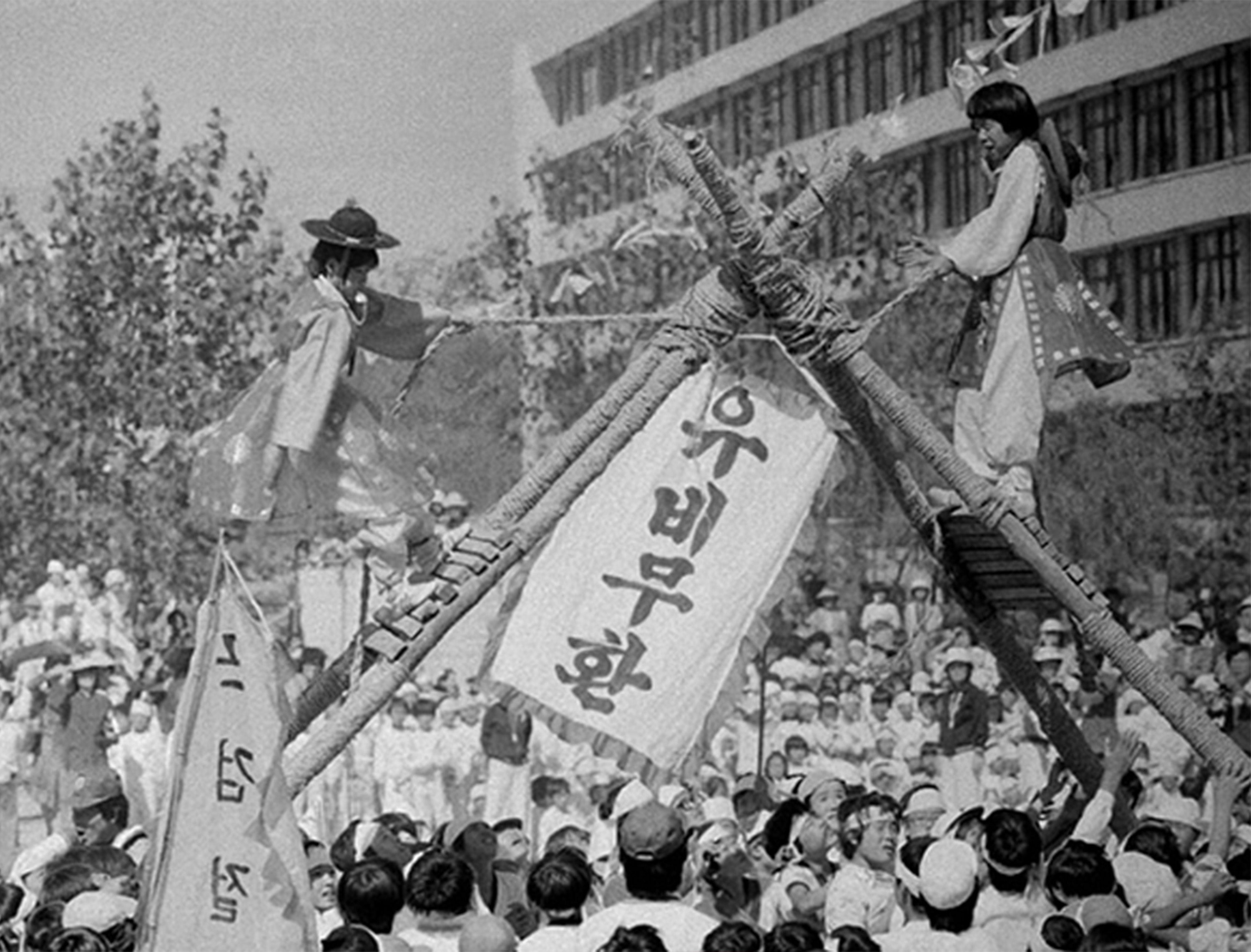Every culture has traditional games that people play together to enjoy their heritage. You might have heard of some games, such as dalk-ssa-eum (also known as “chicken fight”) and jegi-chagi (hacky sack), variations of which exist in other cultures. Other games, such as “The Mugunghwa Has Bloomed” recently gained notoriety after being seen in shows and movies like Netflix’s Squid Game. Today, however, we’ll be sharing some unique traditional games from Korean culture that you might not have heard about before.
1. Jwibulnori (쥐불놀이)
Jwibulnori is a game that appears dangerous but has a lasting history among Koreans. The purpose of this game is to create beautiful streaks of light via a can filled with flammable items. The original intention of this game was to exterminate insects and rats during the first full moon in the Lunar New Year.
To make the torchlight, you need to tie a basket or some kind of container onto a long string. Inside are flammable items such as herbs, mugwort, or paper. By spinning it around, the player will create beautiful shapes in the air. Players can compete with friends to see who can spin the fastest, throw the farthest, and who can make the most stunning shapes when the moon is high.
2. Tuho (투호)
Tuho is a game that involves red and blue arrows thrown into a pot to decide a winner. This game was traditionally played by royal families or the upperclassmen of society, the yangban. The Yegi, an ancient book of rituals, even features this beloved game. According to a historical record of 1116, Yejong of Goryeo commissioned a rulebook of Tuho. They enjoyed the game after a royal banquet or a Giroyeon, a banquet held to honor government official alumni.
The best area to place the tuho pots are on a mat indoors or outside in the grass. Teams then divide in two and stand roughly ten steps away from the bottle. The team with the most arrows in the pot wins. In the past, alcohol was usually given as a reward or a punishment to the winning and losing teams, respectively.
3. Gomujul Nori (고무줄 놀이)
The Rubber Band Game is a children’s game where players hop over a long rubber band tied around two other children’s ankles. It was traditionally played with straw rope. Players can use up to three bands; and although the game can be with two people, the game increases in fun with more players. The player in the middle, who is jumping, has to move with the words of a familiar song. When the player messes up their moves, the members will switch roles. The game increases in difficulty if the band moves higher up the legs. If the band goes as high as the other player’s heads, the player in the middle will have to stand on their hands to move their feet around the band.
The songs sung during the game have changed over time. Most of them are patriotic songs. School songs, commercial jingles, or cartoon themes are the most commonly heard today.
4. Gonu (고누)
Gonu is a game that involves moving one’s pieces to trap or capture an opponent’s pieces on a board. The game has two main variations. In one, the player must trap the game pieces of an opponent to win. In the other, a player can win by capturing the pieces through certain conditions.
In gonu, a player has 12 pieces in their hand. There is a board with 24 intersecting points. During a turn, players put one of their pieces on these points. The space where the piece is removed is either marked with a star or another marker is filled there so nobody can place their pieces there. Players repeat the process until they fill all the points.
5. Chajeon Nori (차전 놀이)
Chariot Game or Juggernaut Battle is a traditional game, usually played by men, that originated in the city of Andong. There is speculation that the game originated as a commemoration of Wang Geon’s victory over Gyeon Won at the Battle of Gochang in 930 at the end of the Later Three Kingdoms period. The game resembles jousting, with two commanders atop large, log frames. The frames are maneuvered by their teams. These logs (known as dongchae) are made up of two 10-meter long logs tied together with rope. The way to win is by forcing the other team’s dongchae to the ground. After a team wins, they toss their shoes into the air.
Would you play any of these traditional games? Let us know in the comments down below!



Leave a comment